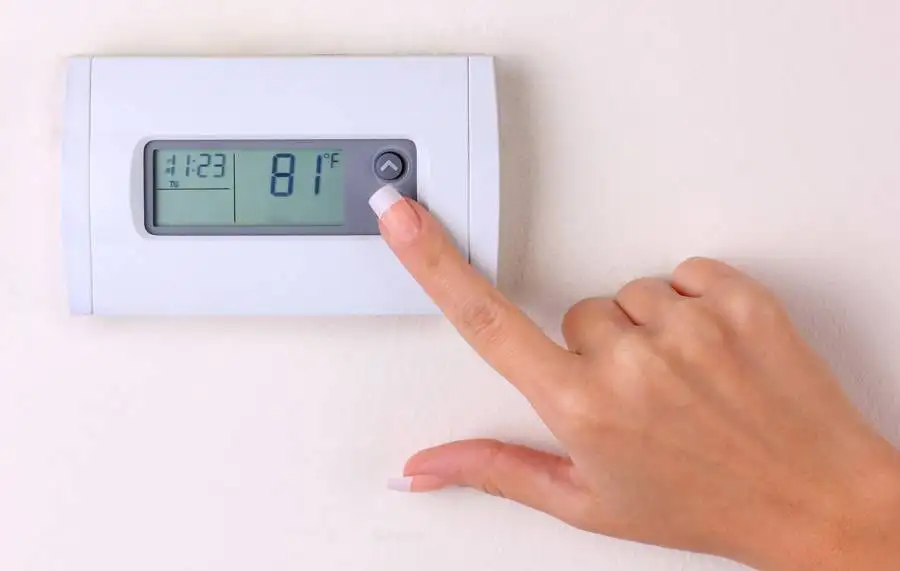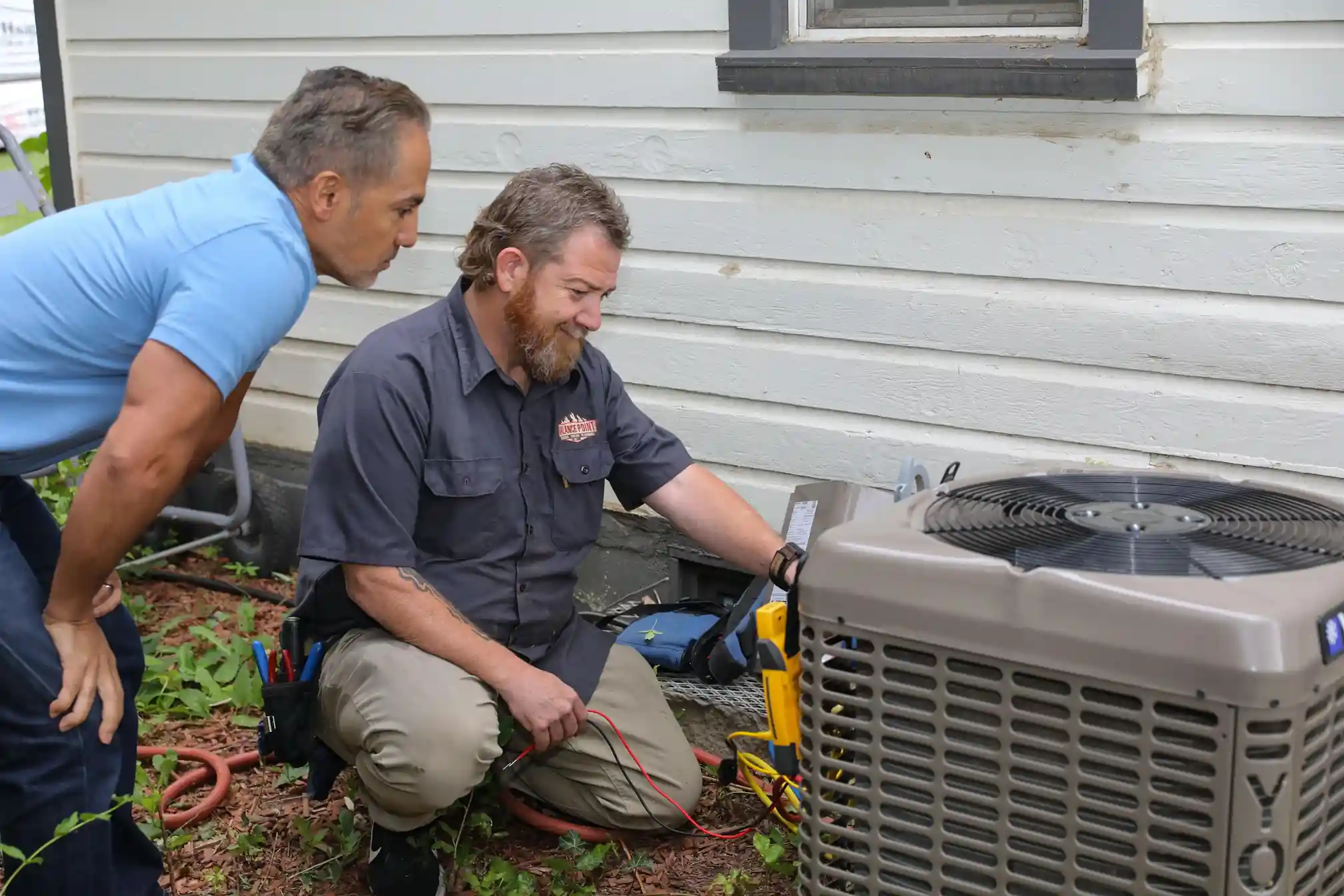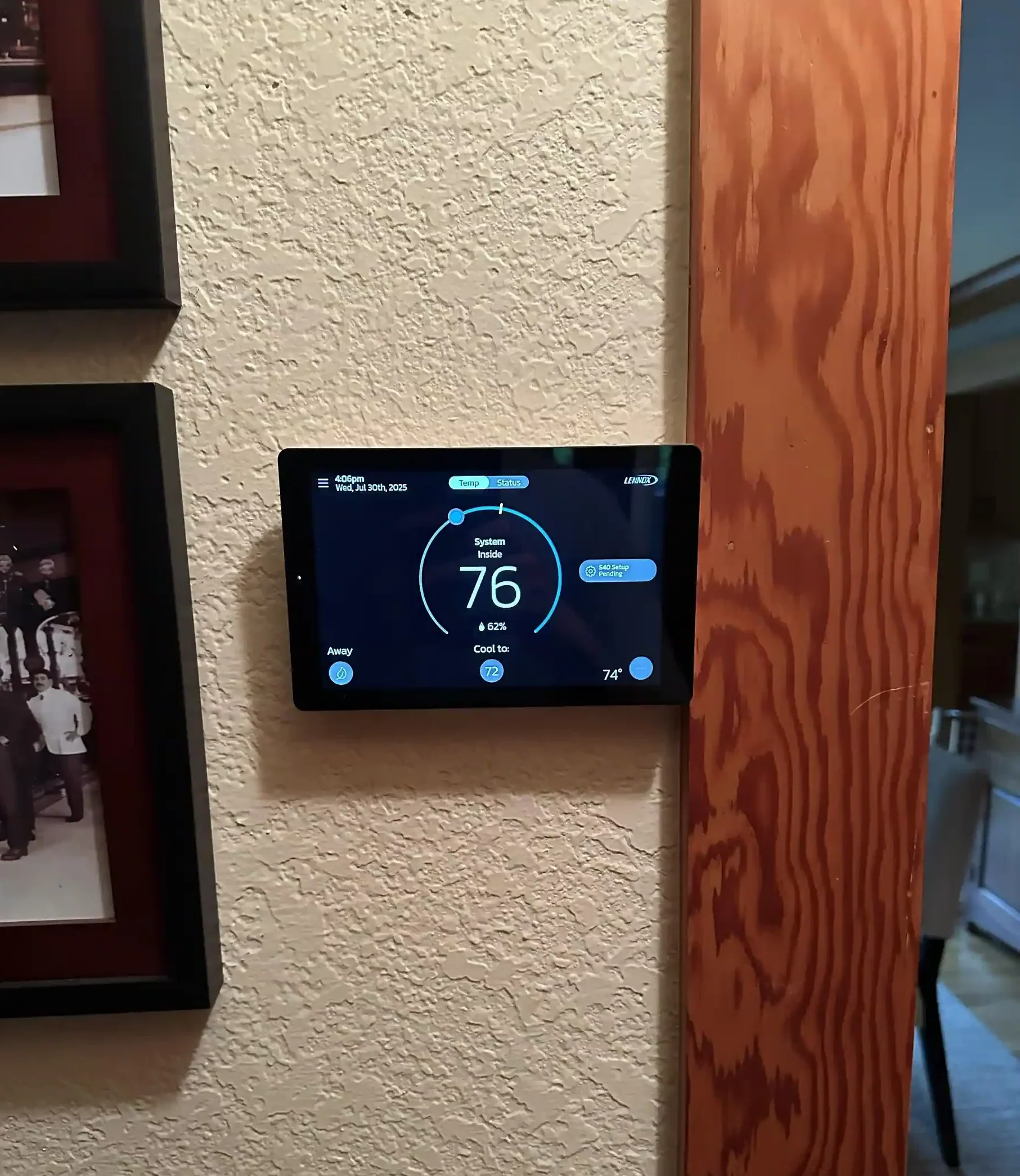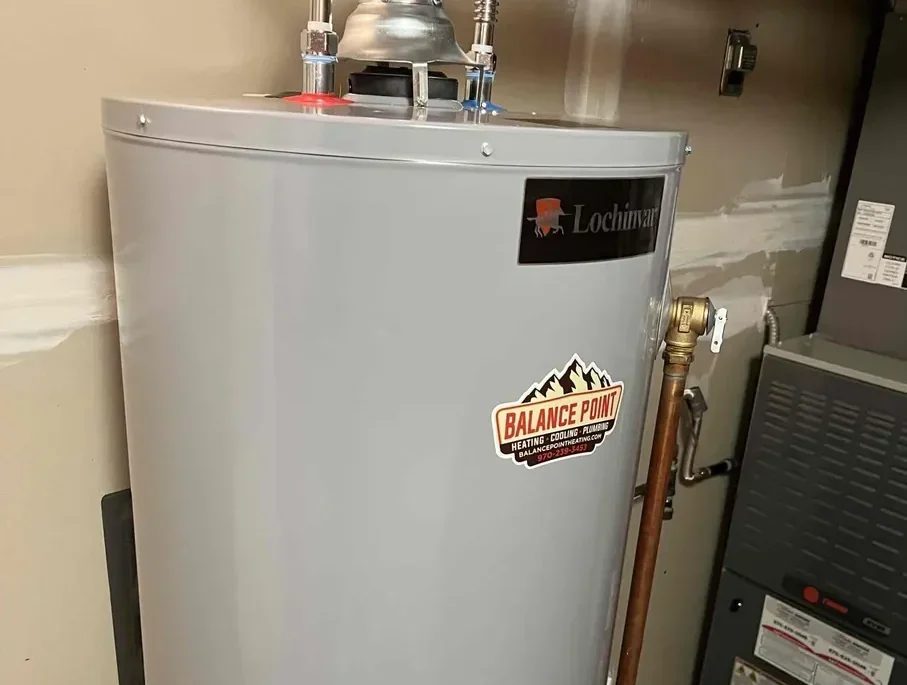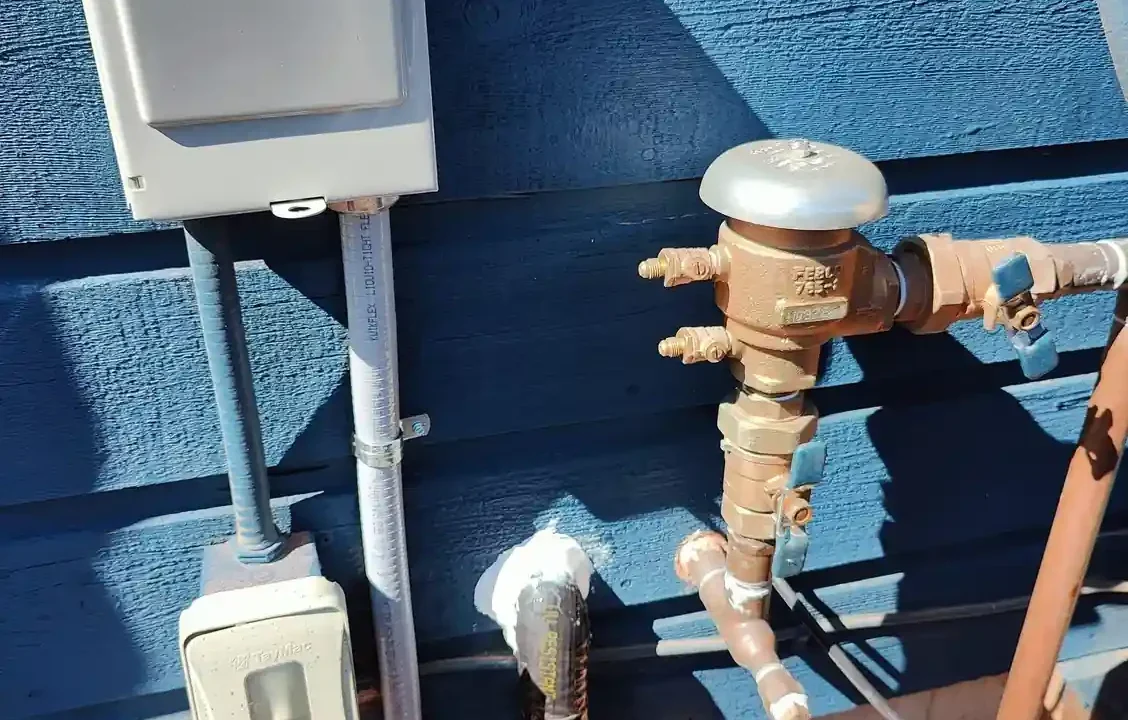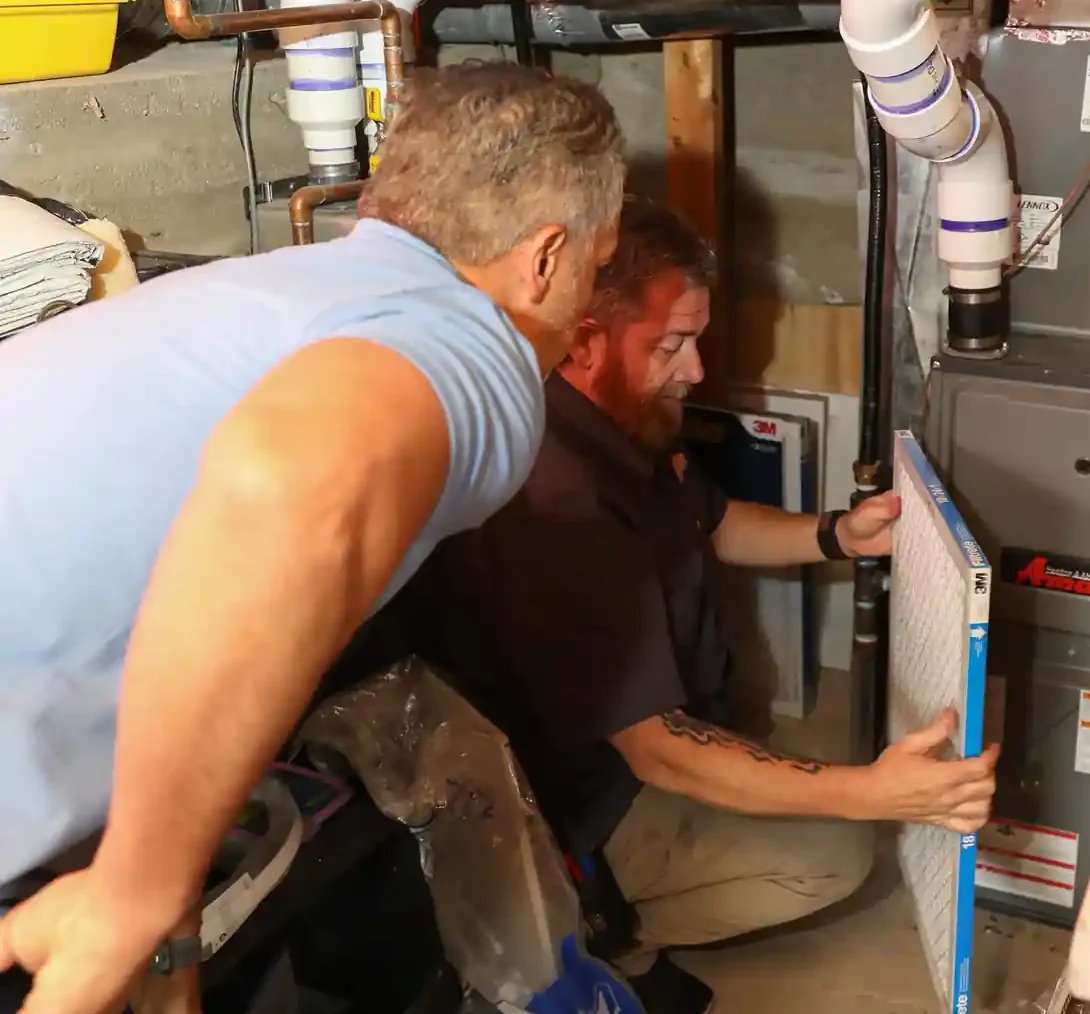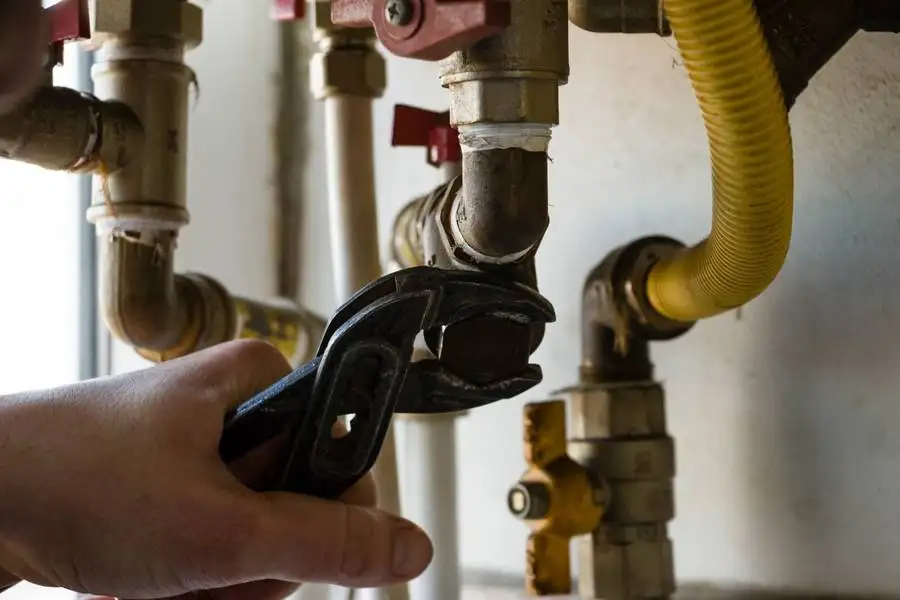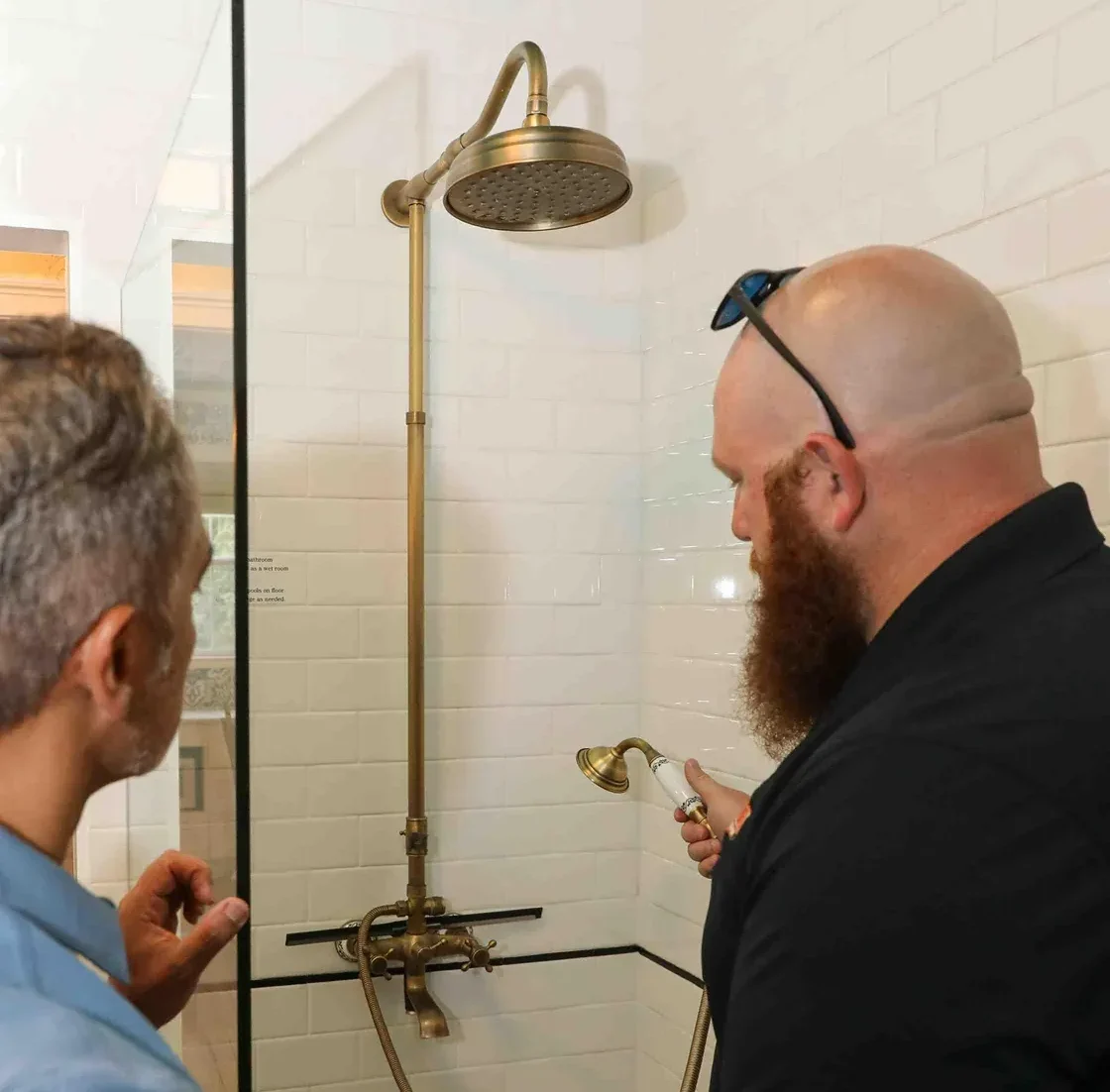Silent & Invisible: Why January Is the Critical Month for Radon Testing in Your Fort Collins Home
It’s January, and you’re just trying to stay warm along the Front Range. Your heater is running nonstop. To keep out the cold, your windows are locked, and your doors are sealed tight. It looks like a cozy house from a Norman Rockwell painting.
Unfortunately, this may not be the case. January is National Radon Action Month for a reason. When everything is sealed up tight, indoor radon levels hit their highest levels. Historically, winter is the worst time of year for radon. Even if you have a new house or your neighbor tested low, you can still have high levels inside your home.
By getting radon testing in Fort Collins in winter, you can ensure your family is safe. For more about this testing and how Balance Point Heating, Cooling & Plumbing can help, read on.
The “Balance Point”: Fresh Air vs. Energy Efficiency
As a homeowner in Fort Collins, it’s essential to find a balance point between sealing your home for heat efficiency and allowing it to breathe for health. When we constructed homes years ago, they weren’t made to be airtight. They naturally breathed, but this led to the loss of heat.
In more recent years, builders have improved their designs and materials. As a result, new homes are incredibly energy efficient and lose much less heat. While this is great for your power bill, it’s potentially damaging your health. New homes function like plastic bags, trapping toxins inside.
By finding the balance point between retaining heat and allowing proper ventilation, you can ensure a warm home without having to sacrifice your winter home air quality.
The Physics: The “Stack Effect” Explained
To see how this works, let’s get the stack effect explained. Visualize your house as a chimney. Throughout the year, hot air rises in your home. It ends up escaping through small cracks and holes in your attic.
However, this is an issue because the removal of air creates a vacuum effect on the lowest level. As hot air escapes out of the top of your home, it pulls cold air in from your basement or crawlspace.
Unfortunately, this effect is strongest when the indoor and outdoor temperatures are the farthest apart. Often, indoor air temperatures will be set to around 70°F. Outdoor temperatures are about 20°F. Because of this drastic difference, more soil gases are pulled into your home than during any other month.
Thanks to granite soil’s uranium, radon is produced as a byproduct. Whenever the crawlspace air is pulled into your home, it is bringing radon gas with it.
Ventilation: The Other Half of the Puzzle
If you check out the Zone 1 radon map in Colorado, you’ll see that radon is a common concern for many local homeowners. However, some homes test surprisingly low. That’s because there is a second piece to the puzzle involved: ventilation.
Mitigation Vs. Dilution
As a homeowner, it’s essential to understand the difference between radon mitigation vs. ventilation. Many homes use mitigation fans, which are blowers that remove radon gases from underneath your home and vent them above your roofline. Also known as sub-slab depressurization, these fans are essential for reducing the amount of radon gas in your basement or crawlspace.
However, mitigation is just part of the solution. You also need to effectively dilute the amount of radon gas that is already in your house.
Heat Recovery Ventilators
Heat recovery ventilators (HRVs) for radon are an effective tool for improving your indoor air quality. They are designed to swap your stale, radon-filled air for fresh outdoor air. As this transfer is performed, the heat from the outgoing air is transferred to the incoming air so that your home doesn’t waste as much energy.
The process begins when the central unit brings in stale air from your home and vents it through the exhaust. To balance the airflow, fresh air is also brought into your home. In the middle of this process, the heat exchanger core is responsible for transferring heat. During the winter, it uses the heat from your indoor air to warm up the incoming air. In summertime, heat from the incoming air is transferred to air that is being released from your home.
This fresh air exchange system is incredibly effective for improving indoor air quality in Larimer County. It is an inexpensive, effective way to avoid radon risks if you live in Northern Colorado. When paired with mitigation, HRVs are a powerful tool for boosting air quality.
The DOs
From digital monitoring to radon testing in Fort Collins in winter, there are a few essential steps you can take to ensure your home and family are protected from radon.
DO Test in January
When you test your home is essential. During January, radon levels will be at their worst. If you get a clean test result in January, you can be confident that your family is safe for the rest of the year.
DO Use Digital Monitoring
Radon levels can change over time, especially if you make changes to your heating, ventilation, and air conditioning (HVAC) setup. Improved ventilation, crawlspace encapsulation, and changes in your heat consumption can all impact whether radon levels increase or decrease.
To ensure your family’s safety throughout the year, you need more than a one-time charcoal test. With long-term monitors, such as Airthings, you can get instant feedback on your day-to-day radon levels.
DO Seal the “Envelope”
By sealing your home’s envelope, you can prevent radon from getting in. Start by sealing home cracks in winter, especially large ones in your basement floor. If you use a sump pump, it should have a cover.
Crawlspace encapsulation is also an effective tool for lowering radon levels. It involves using a heavy-duty vapor barrier to cover the dirt floor and foundation walls, so radon is blocked from getting into your crawlspace.
The DON’Ts
By being proactive, you can protect your family from the dangers of radon gas. As a part of your protective measures, avoid doing the following things.
DON’T Rely on Summer Tests
Again, radon levels are at their highest in the wintertime. During the summer, windows are often open to let in fresh air. This reduces the amount of radon in the air, impacting your test result. Relying on summertime tests will give you a false sense of security.
DON’T Ignore the Crawlspace
Even if you’re not interested in basement living, the stack effect can still impact your air quality. Because air will be pulled from the crawlspace, it’s essential to use encapsulation, sub-slab depressurization, and sump pump covers to reduce the amount of radon gas that is inside your crawlspace.
DON’T Seal Without Ventilation
If you want to save money on your energy bills, sealing your ductwork is an effective solution. To prevent lost heat, you should also seal around doors and windows.
However, there is a potential danger involved when you seal your home. While sealing ductwork and the building structure can prevent heat loss, it can be a major health issue if you haven’t installed mechanical ventilation. Unless you ventilate your home or open some windows, the toxins will continue building up inside.
Troubleshooting: My Levels Are High. Now What?
You’ve finally decided to test your home for radon levels. Now that you’ve received the results, you’re concerned about how high they are. If you experience either of the following two symptoms, it’s time to make some changes to your home’s mitigation and ventilation systems.
- You consistently get readings above 4.0 pCi/L.
- You smell musty odors in the basement, which often indicates that soil gases are present.
If your radon testing in Fort Collins in winter showed high results, don’t panic. The following troubleshooting steps can help you protect the health of your family.
Confirm the Test
First, confirm that the test was accurate by testing again. It’s always possible that something was wrong with the first test.
Call Balance Point
Afterward, give our HVAC technicians a call. We can professionally test your home. Then, our team will review your home’s design and HVAC setup to see where changes can be made.
Encapsulate the Crawlspace
If you haven’t carried out crawlspace encapsulation yet, now is a good time to do so. By using a heavy-duty vapor barrier on the walls and floor of your crawlspace, you can stop radon gas from coming inside.
Invest in Mitigation
Sub-slab depressurization is an effective tool for removing radon gases that build up underneath your home. It can significantly reduce your lung cancer risks as a non-smoker, improve your air quality, and lower the humidity level in your home. Plus, they are known for being extremely low maintenance.
Install an HRV
Setting up a sub-slab depressurization is just one half of the equation. With HRVs, you can improve the ventilation inside your home so that fresh air is brought inside. Heat is exchanged between your indoor and outdoor air, so you don’t have to worry about energy-efficiency issues.
Seal Cracks
While it won’t solve the problem completely, sealing up cracks can prevent radon gas from getting inside. Many homeowners don’t notice cracks in their crawlspace or basement, especially because they can develop slowly over time. With a few simple repairs, you can prevent one cause of radon gas exposure.
Discovering radon gas isn’t a death sentence. Our talented HVAC technicians are experienced at treating and preventing radon gas in homes. If you are uncertain about how to purify your indoor air, reach out to our team for a professional evaluation.
Why Professional IAQ Services Matter in Fort Collins
In Northern Colorado, we are classified by the Environmental Protection Agency (EPA) as Zone 1. Because Larimer County is Zone 1, we have the highest potential for radon gas.
Unfortunately, radon is known to be a leading cause of lung cancer in the United States. An estimated 21,000 people die every year from radon-caused lung cancer. Throughout the United States, almost 1 out of 15 homes has radon levels that should be reduced.
Thanks to our local geology, radon levels are naturally high in Larimer County. The good news is that you don’t have to simply put up with high radon levels. There are effective tools that can reduce the amount of radon in your home.
When you reach out to Balance Point for indoor air quality improvements, our team will approach the problem holistically. First, we’ll look at your furnace to determine if there are any issues contributing to your IAQ problems. We will check your ductwork for signs of leaks, crushed sections, and other air flow issues. Then, our technicians will inspect your ventilation to make sure it is adequate for your home.
Once our inspections are complete, we can recommend the best course of action. Depending on the extent of the problem, you may need an HRV or a sub-slab depressurization system installed. Additionally, we may recommend using different types of air purifiers and humidifiers to improve the air quality inside your home.
Ultimately, our goal is to go beyond simply installing a fan. Our advanced systems allow you to vent radon gas outside your home, improving your home’s air quality and the health of every person inside. From diagnosing complex entry points to testing the radon level in the air, our HVAC technicians can ensure your home is protected.
Learn more about how Balance Point Heating, Cooling & Plumbing can decrease radon levels in your home by reaching out to our team of HVAC experts today.
Keep Your Home Safe This Winter
Thanks to Front Range geology, radon is a real risk for local homeowners. Fortunately, it is easy to conduct radon testing in Fort Collins in the winter. If your radon levels are high, there are simple steps we can take to fix the problem. You don’t have to decide between a warm home and a healthy home.
Unsure what you are breathing this winter? Contact Balance Point Heating, Cooling & Plumbing for a comprehensive Indoor Air Quality assessment and find out if an HRV is right for your home.


